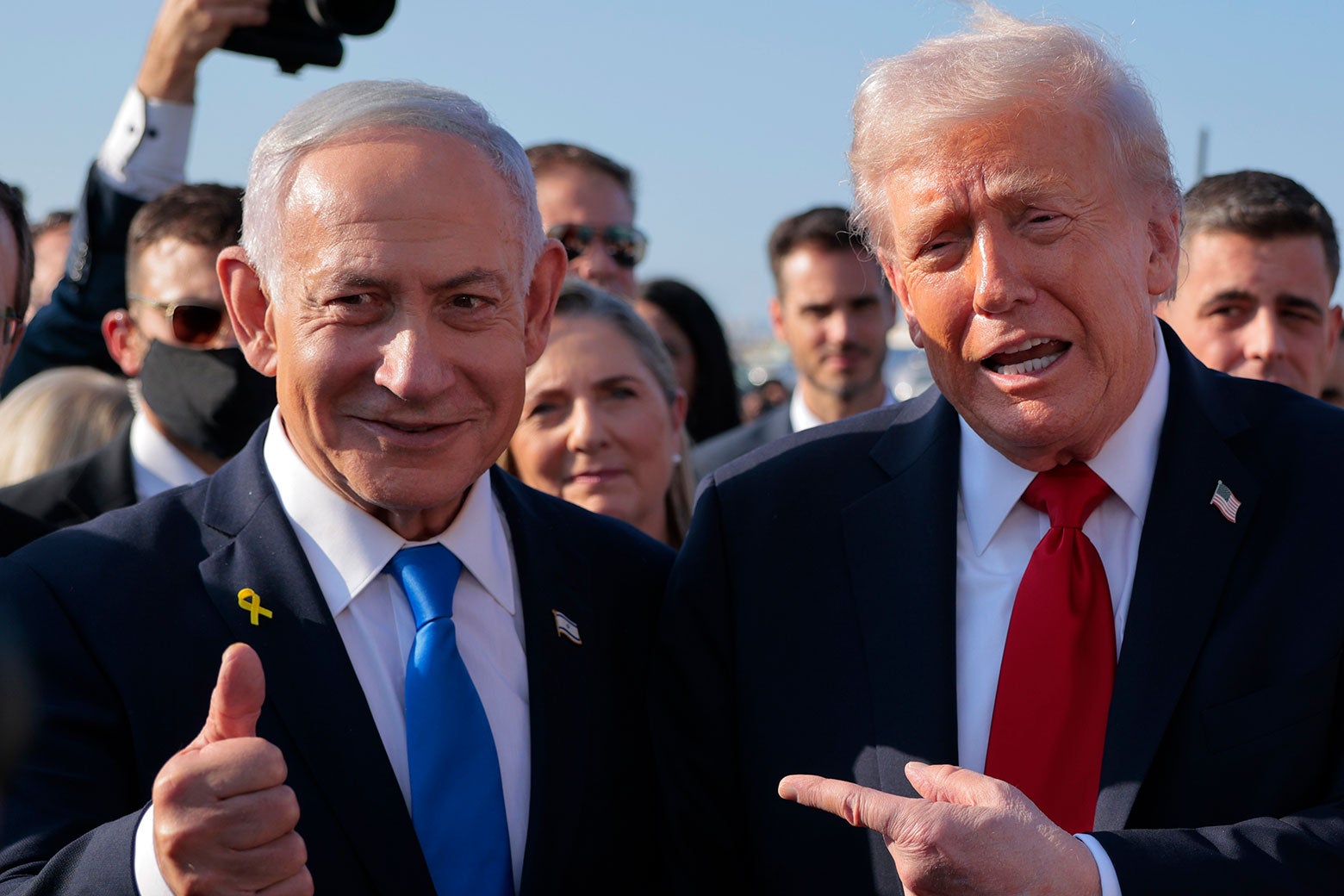
"This week, Emily Bazelon, John Dickerson, and David Plotz discuss the Gaza ceasefire and prospects for long-term peace with Rob Malley, Middle East policy expert and co-author (with Hussein Agha) of the new book Tomorrow is Yesterday: Life, Death, and the Pursuit of Peace in Israel/Palestine, which side is likely to fold first in the ongoing government shutdown, and who benefits as the Supreme Court hears arguments about whether the 14th Amendment clashes with the Voting Rights Act."
"Here are some notes and references from this week's show: Amna Nawaz and Dan Sagalyn for PBS News Hour: Experienced Mideast negotiators break down how Gaza peace deal came together(video, 8:18) Hussein Agha and Robert Malley for The Guardian (Opinion): Life in Gaza may go from utter hell to mere nightmare. What happens now? Karen DeYoung for The Washington Post: Trump, hailing a 'new Middle East,' avoids many of the hard questions ahead"
A Gaza ceasefire provides humanitarian relief but leaves unresolved political, security, reconstruction, and governance challenges that complicate prospects for durable Israel–Palestine peace. Negotiators stress that sustainable settlement needs agreements on hostages, territorial arrangements, civilian protections, reconstruction funding, and political frameworks. A U.S. government shutdown risks disrupting federal services and programs as parties use funding standoffs to pressure opponents. Shutdown effects include airport delays, paused R&D allocations, and concentrated harm to specific districts and federal workers. The Supreme Court is considering whether the 14th Amendment conflicts with the Voting Rights Act, with major implications for enforcement of voting protections.
Read at Slate Magazine
Unable to calculate read time
Collection
[
|
...
]